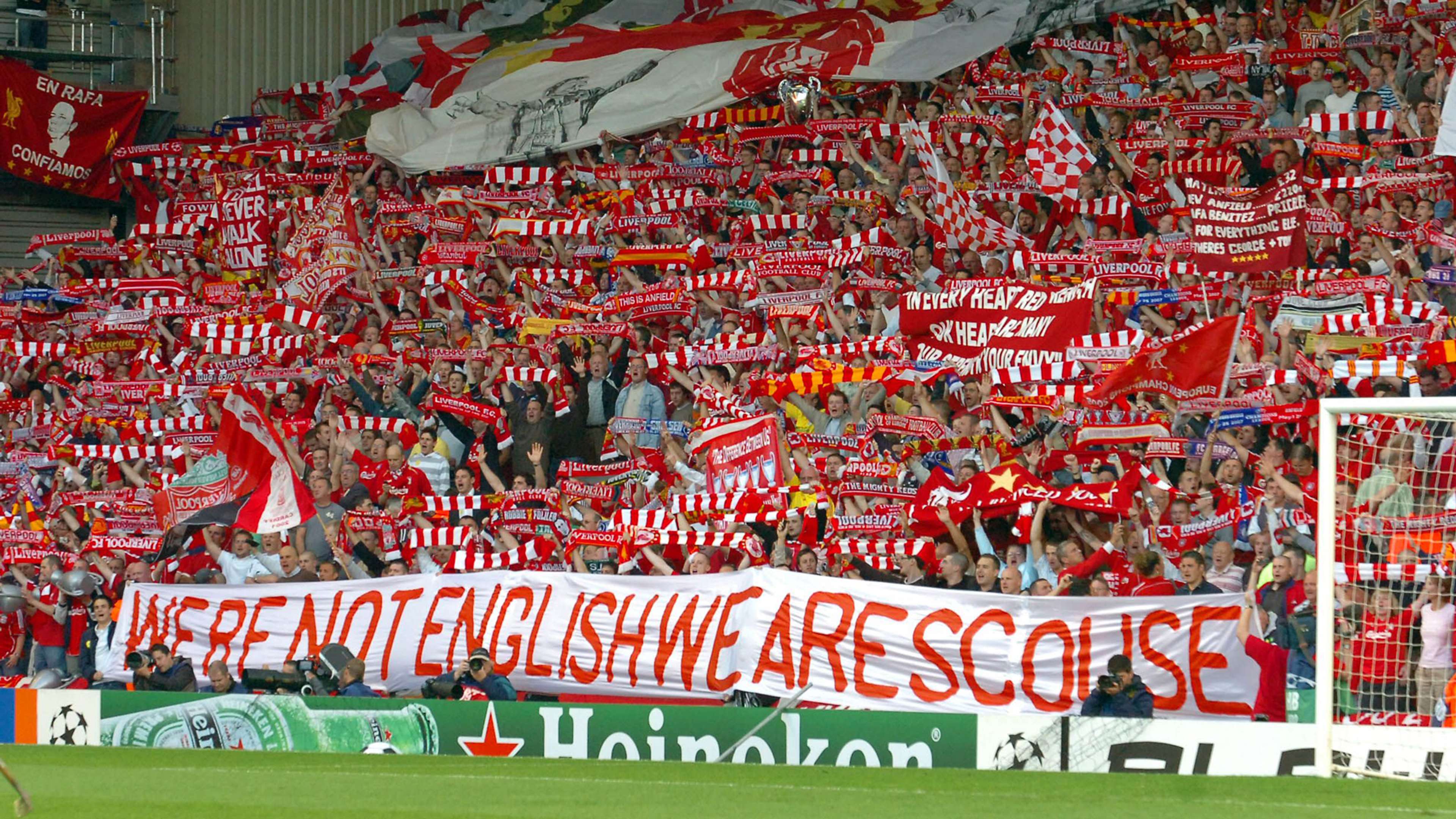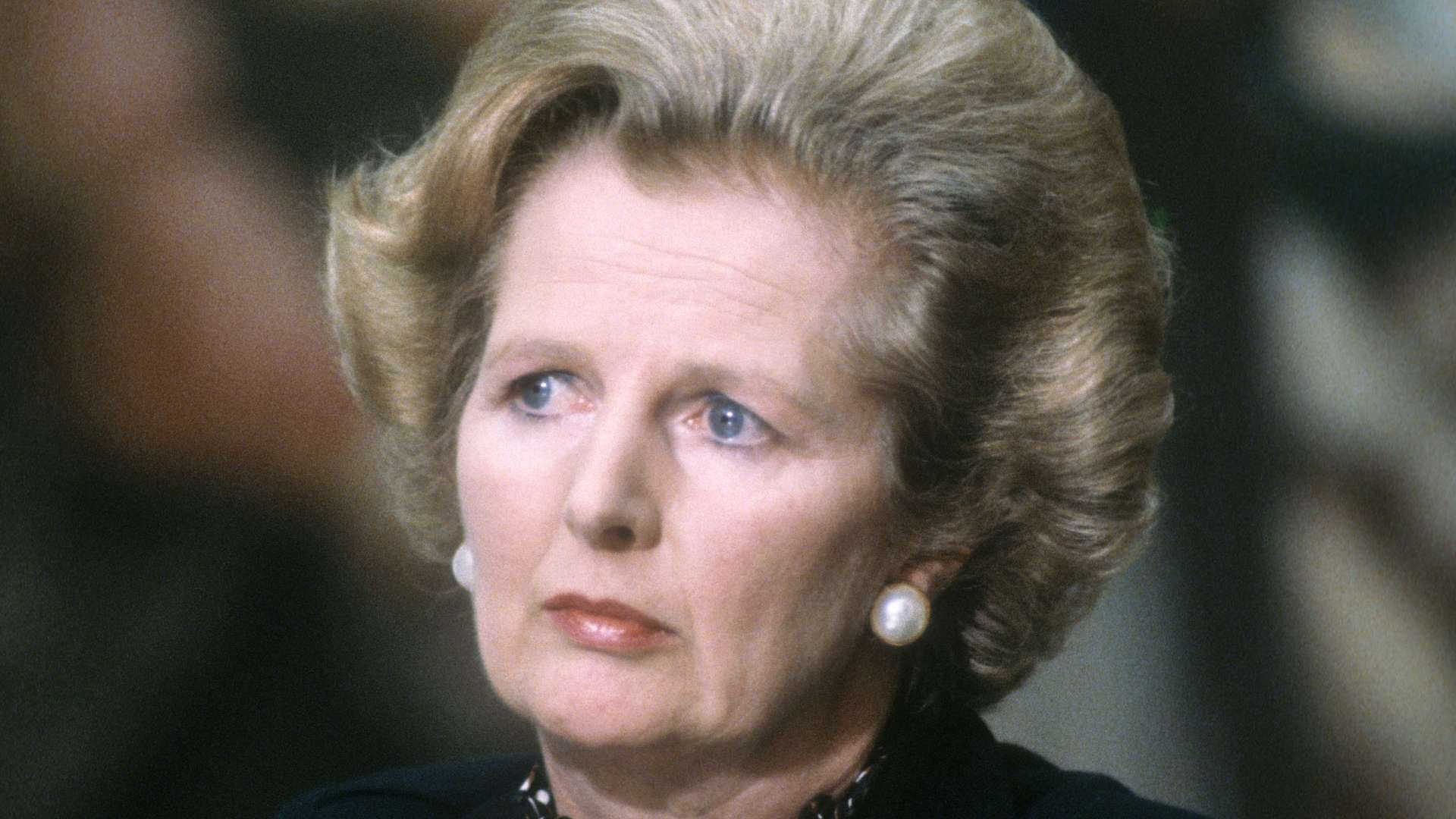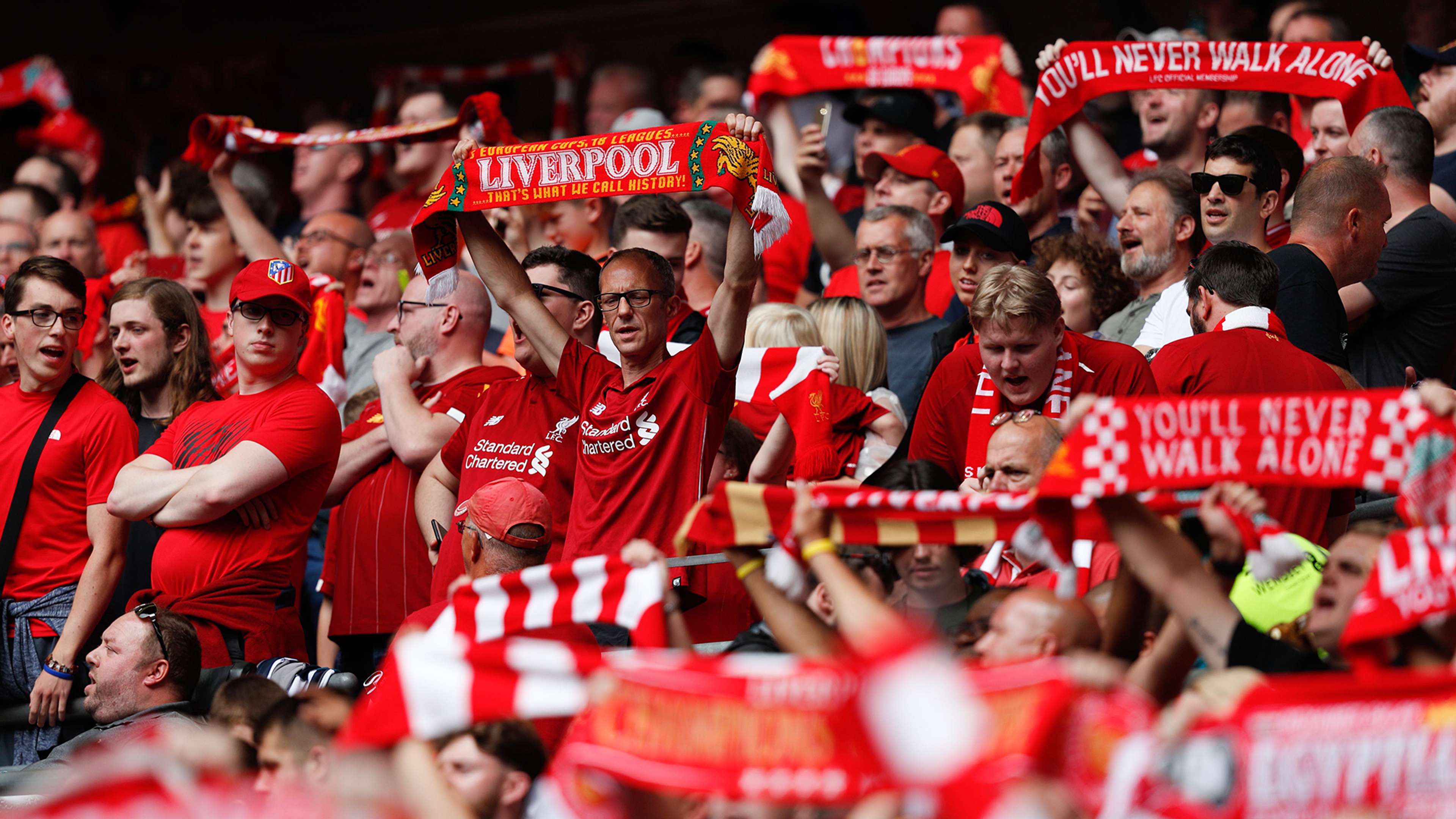If you have ever tuned in to a Community Shield match or major cup final involving Liverpool, chances are you would have heard a large chorus of boos ringing from the red half of Wembley during ‘God Save the King’.
On social media, spectators have dismissed the reaction by Liverpool supporters as disrespectful as fans are expected to be standing while the anthem is played, with others left confused as to why the anthem is met with such a negative reception from the Merseysiders.
Why do Liverpool supporters boo the national anthem? GOAL takes a look.
Why do Liverpool fans boo the national anthem?
There are a multitude of reasons as to why Liverpool fans – and Liverpudlians in general – choose not to associate themselves with the English national anthem and what it stands for.
A flag bearing the words ‘Scouse not English’ pops up regularly at Anfield, and it perhaps best epitomises the struggles that Liverpool natives feel in regard to patriotism and nationalism.
A huge part of Liverpudlians feeling ‘othered’ on English soil comes from the treatment of Conservative-led governments dating back several decades. Having never truly felt the support of their government, people from Liverpool identify less as English and more as their own separate 'Scouse' entity.
 Getty
GettyThis was especially prevalent in the 1980s during the tenure of Conservative prime minister Margaret Thatcher, as she, along with her party, was indifferent to the industrial decline of Merseyside.
It led to severe unemployment and poverty within the city, with the government largely unwilling to aid, and even cutting its public services.
The city had played a key role in World War II, but after the war ended, Liverpool was hit with economic hardship as the trade at their ports – which were once dominating the industry – had slowed down.
In 2011, official papers revealed that Margaret Thatcher was indeed secretly urged to consider abandoning Liverpool to a fate of "managed decline".
“In plain English that meant withdrawing resources from the region so that residents would be forced to leave,” states the Independent. “Effectively starving them out.”
Files released under the 30-year rule showed senior Tory ministers urging her not to spend public money on the "stony ground" of Merseyside, with former prime minister's chancellor Sir Geoffrey Howe saying it would be like "trying to make water flow uphill".
The reports affirmed what those in Liverpool had already been sure of for a while – that their region did not have the backing of the government, and that it was never a priority.
Liverpool as a city has changed drastically since the 1980s, still retaining its status as a crucial sporting and cultural hub, but its citizens’ disregard and resentment towards a government that had never supported them still remains.

And so, the distrust has developed an “us against them” mentality directed at the Conservatives in power, which is still strong to this day.
Moreover, Liverpool is famously a town of immigrants, with many of its residents not even considering themselves English. Its ports have attracted people internationally, and it is home to one of England’s oldest African and Chinese communities.
The effects of the Irish famine also greatly impacted Merseyside, as a grand influx of the Irish population fled their homeland to migrate to Liverpool. As a result, Liverpool has a strong Irish identity, and yet Irish people had been made to feel ‘othered’ in their new home by other English people.
Is the Hillsborough disaster related?
There is also the matter of the handling of the Hillsborough disaster and its aftermath.
Former Conservative MP Irvine Patnick had a strong role in spreading the gross untruths and lies about the Liverpool supporters involved in the 1989 tragedy.
While Boris Johnson was editor of The Spectator in 2004, an article written by Simon Heffer spoke of the ‘victim’ mentality of the people of Liverpool.
"A combination of economic misfortune — its docks were, fundamentally, on the wrong side of England when Britain entered what is now the European Union — and an excessive predilection for welfarism have created a peculiar, and deeply unattractive, psyche among many Liverpudlians,” wrote Heffer.
"They see themselves whenever possible as victims, and resent their victim status; yet at the same time they wallow in it.”
He also referred to the grave mishandling of the police as a scapegoat.
Johnson has refused to apologise for the piece that was published under his time as editor in Parliament when Liverpool MP Maria Eagle requested him to – instead glossing over the issue without responding.
And so, it’s not entirely surprising as to why Liverpool fans feel so strongly about singing the national anthem, as they feel that in doing so, they would be giving their backing to a monarchy and regime that has never really shown them any support.
